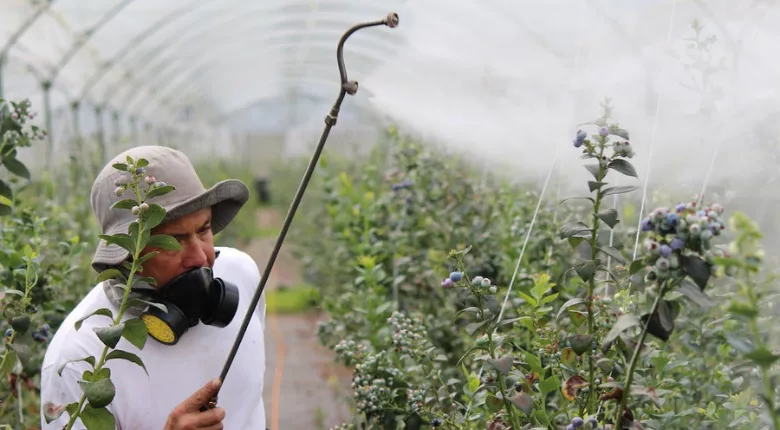EU to Renew Approval of Toxic Herbicide Glyphosate for Next 10 Years, Sparking Controversy

Image credit: Laura Arias via Pexels
After the European Food Safety Authority (EFSA) finding of “no critical health concerns” for humans, animals, or the environment associated with glyphosate in July 2023, the European Commission (EC) is poised to make the controversial decision to renew approval of the use of the herbicide in the EU for the next decade. Glyphosate is the active ingredient in Monsanto-Bayer’s Roundup product line, which is one of the most widely used herbicides for food crops.
Global Concerns About Glyphosate
Glyphosate has come under scrutiny in recent years due to concerns over its toxicity, with the World Health Organization (WHO) declaring it a “probable carcinogen” in 2015. Although other national regulatory agencies, such as the U.S. Environmental Protection Agency (EPA), have also concluded the herbicide to be safe to humans, the decision in the U.S. was also controversial, being met with a lawsuit by the Center for Food Safety in 2022 that resulted in the U.S. Court of Appeals for the Ninth Circuit overturning EPA’s decision due to the agency not adequately considering the chemical’s carcinogenicity. Also in the U.S. in recent years, many lawsuits have been filed against Bayer for Roundup causing cancer in its users.
Additionally, in October 2023, experts from Wageningen University and Research called into question EFSA’s risk assessment of glyphosate that “found no critical health concerns,” calling for its use to be curbed while acknowledging that completely banning the substance too early may lead to farmers using chemical alternatives that are just as harmful to human and environmental health.
EFSA’s Decision to Renew Glyphosate’s Approval
In October 2023, the governments of EU Member States failed to vote with a “qualified majority” to either approve or block the approval of glyphosate. A qualified majority means that 15 countries representing 65 percent of the EU population must be in consensus to enact a decision. EC met again on November 16, 2023 to discuss the issue, and was unable to deliver an opinion, still without a qualified majority consensus.
In line with EU legislation, EC is now obliged to adopt a decision before December 15, 2023, when the current approval period for glyphosate expires. Based on the assessments carried out by EFSA and the European Chemicals Agency (ECHA), EC has stated its intent to proceed with the renewal of the approval for a period of 10 years, subject to certain conditions and restrictions on its use.
Looking for quick answers on food safety topics?
Try Ask FSM, our new smart AI search tool.
Ask FSM →
Individual EU Member States will remain responsible for authorizing plant protection products containing glyphosate.
Controversy Over EC’s Decision
Non-governmental organizations are calling for EC to withdraw its decision to reapprove glyphosate, such as Greenpeace and the Health and Environment Alliance (HEAL). The French pro-environmental farming group, Confederation Paysanne, called the decision "scandalous,” and said “The end of glyphosate must mean the transformation of an agricultural system that is running out of steam. Technical alternatives to glyphosate exist: the extension of rotations and diversification of crops into field crops, and mechanical weeding in general.”
A Greenpeace representative stated, “There is enough scientific evidence of the toxic effects of glyphosate on people’s health and on the environment that cannot be ignored. European governments have a duty to protect their citizens’ health and the nature we all rely on. Policymakers have the chance to end glyphosate’s toxic legacy in Europe, they must take it and vote against renewing the license.”
HEAL wrote, “Glyphosate is the most widely used pesticide in the world, which is of concern since its negative impacts on human health and the environment are well-documented. Exposure to this infamous pesticide may cause cancer, according to robust scientific evidence. And yet, the EU has started the process to renew its market approval, which is expiring in December 2023. HEAL’s vision is clear: the use of glyphosate must be banned globally and the protection of human and environmental health must come first.”
However, some companies and groups are applauding EC’s decision. Bayer itself said about the decision “We firmly believe in the safety of our products, including glyphosate… Farmers in Europe and around the world rely on glyphosate-based herbicides as safe, cost-effective components of their integrated weed management practices, helping to ensure more productive harvests while preserving the environment.”
Copa and Cogeca, a farming group, wrote, “Currently there is not any equivalent alternative to [glyphosate], and without it, many agricultural practices, notably soil conservation, would be rendered complex, leaving farmers with either no solutions or with alternatives that consume even more herbicides.”









